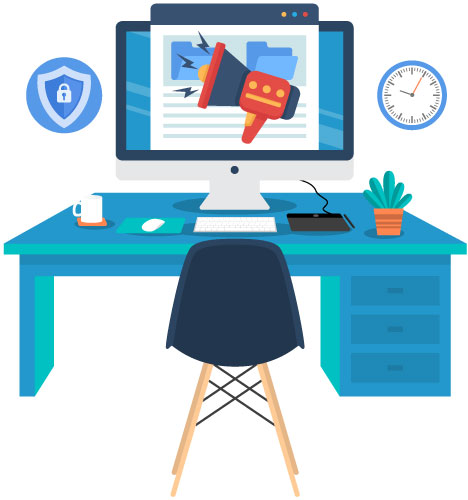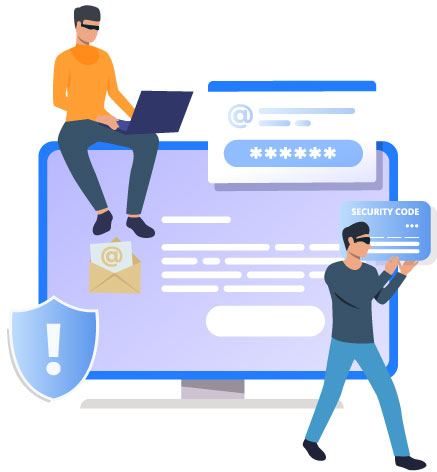There has been an increasing trend of data attacks and related breaches in the past years, a sign that data hackers are getting more advanced ways to fish your business information.
With more data threats, even risks considered less likely for business have grown to become more common. For this reason, it has become more critical for business managers to understand that their companies are always open to risks as no one business is full proof.
Therefore, they must be prepared for any form of threat to data and information.
The good news for businesses is that there are numerous ways they can now protect themselves from a data breach. From internal policies to the security of data and information in external platforms such as cloud storage and data recovery software. Tools like entitlement management can control and regulate user access to sensitive resources and systems within an organization. The link will explain what is entitlement management.
Also, apart from securing your data, you should understand and be able to find out best data recovery services in your city.
Let us look at the 5 business data security tips you can implement to protect your company.
Contents
5 Business Data Security Tips for your Business
1. Promote Awareness Among Employees

Most of the physical security and data security breaches in business today are caused by employees’ ignorance or negligence.
This is because the workers still fall prey to phishing scams,
including SMS phishing, unintentionally expose sensitive data as they work on a mobile device in public, or click on malicious links.
For these reasons, awareness creation among a company employee is one significant step ahead of data security. You can invest in training our workers for an increased understanding of the importance of data security and data security protocols, including encouraging or facilitating their attainment of CISSP certification.
Some of the best ways to protect your business data, such as file recovery software for PC, can only be learned by employees through training and awareness seminars, like CISSP certification training.
Another critical area to address is corporate credit card misuse – an often overlooked aspect of business data security. Unsecured and improperly managed corporate credit cards can leak financial data, which cybercriminals might exploit.
Therefore, implement strict company policies explaining appropriate usage and continuously monitor card activity for any irregularities.
Although there is always a computer guru in every team, they may not take their time to train every employee on data protection.
Nowadays, almost all of our information is online and digital, which means that every business must be aware of data security threats, from online banking to funeral services, ours and our clients most important data needs to be protected.
3. Encryption

Data encryption is one other critical step in securing your data. Data encryption scrambles or jumbles data to make it so hard to compromise without a passcode.
And, you do not need computer skills to do this with your business information. All you need is a computer program to encrypt and decrypt your data, and there are many such programs.
Indeed encryption should be at the core of any effective vulnerability management program, since it provides a base level of protection that even the smallest organization can implement with ease.
To be much safer, you must encrypt all your data storage from desktop computers, tablets, laptops, USBs, emails, among the many other storage devices in your company. Implementing Privileged Access Management (PAM) alongside these security measures will ensure that only authorized personnel have access to sensitive data, further enhancing your security proofs and increasing your data recovery for PCs in case of attacks. To further enhance your security measures, implementing Single Sign-On (SSO) will simplify access management to sensitive data by allowing users to authenticate once and gain secure access across multiple platforms. For instance, Keycloak SSO can be integrated to streamline user authentication and enhance security.
3. Backup Your Data

With more ways to take hostage of your data, criminals can easily expose your business by simply installing ransomware on your computer. Large businesses are big targets as they will be willing to pay for a rescue.
Apart from ransomware, your business data could also be affected by natural accidents such as floods or even fires in your office. For this matter, you should back up your data regularly to keep your business immune from such possible threats.
Some of the best ways to backup your company data may be through creating duplicate data on other physically available storage devices.
For instance, you can store data in other computer hardware or even create a server for all your business data backups. Besides, you can use cloud storage as a backup for critical business information. Regular data backups can protect your business from ransomware and natural disasters. Consider using both physical storage and cloud solutions for redundancy.
Cloud storage offers numerous benefits, including accessibility, cloud governance policies, and other enhanced security measures like cloud VPNs, which provide encrypted connections to safeguard your data online.
Implementing a preference management platform could also play a pivotal role in maintaining robust data security and compliance, aligning with best practices for handling sensitive information.
Keeping all your data or just a backup of them in the cloud is, however, a much better alternative than keeping it on site. Besides, there are additional benefits of using cloud computing for your company.
In an era where data security is a significant concern, using advanced measures like the use of cloud VPNs could further enhance the safety of your stored data. Cloud VPN provides an encrypted and secure connection to the internet, which is crucial in preventing unauthorized access.
For instance, if you can recover deleted files, then they are equally safe from accidents. Such security protocols may also include encryption.
Besides, and to make your data much more secure, the security layers can be made so specific that they will only decrypt files when individuals with exact IP addresses and passwords try to access them.
In addition, it is crucial to have at least one employee who understands the security protocols and ensure that existing employees are denied access immediately by blocking their access codes.
4. Create A Data Fortress

Hackers and scammers are very clever. They may either sneak in through a backdoor to access your operating system or even use brute force to break the protocol.
Also, hackers can send links and emails that seemingly appear legitimate and use them to steal information from your computer.
They can also hack into your webcam or even microphone to try to steal passwords or other important information. Disk Drill by CleverFiles will help you mount a data fortress for your business.
Here’re some of the best ways to build a data fortress:
4.1) Use Firewalls
Firewalls are essential tools for blocking malicious programs from outside. This stops them from penetrating your device and gaining access to your data.
Hardware-based firewalls are best at protecting your data as they will add a layer of security instead of software-based ones.
4.2) Maintain Up-To-Date Anti-Malware And Antivirus Programs
Antivirus and anti-malware also help secure your data by mounting security layers against programs that are not safe to access or use.
Therefore, you should have antiviruses and anti-malware installed in all your business information devices, whether computers, laptops, or smartphones.
Besides, you should activate periodic scans to ensure your devices have all-time protection.
4.3) Disconnect Or Block Webcams And Microphones
Hackers have a clever way to turn on and access your webcam and microphone without your knowledge. They can then use them to steal valuable business information from your devices.
As a result, you can block inbuilt webcams by putting stickers to cover them or disconnecting them from the computer if they are separate.
4.4) Use A U2F Key Or Other Two-Factor Authentication
When sending a password to a separate device known as a U2F Key, you should ensure that a second factor for authenticating access is also provided.
This is because a password may not be very secure on its own. If a user requires a second passcode to access critical information, it is less likely that the information will be accessed by the wrong person.
5. Enforce And Reinforce Mobile Data Safety

With the increasing need for businesses to enact BYOD policies, mobile data security is increasingly becoming a concern.
If your employees lose one of the devices or they get stolen from them, the damage could be just as much as if it occurred to a laptop or desktop at the office. You can improve mobile security and data recovery by:
- Backing up mobile data
- Using passcodes to secure the device
- Enable remote location on the device
- Install mobile antivirus and anti-malware
Partnering with an EMM provider can also enhance these security measures and ensure comprehensive device management
Conclusion
Hope these business data security tips help you provide reliable data security for your business.

























 Email
Email SMS
SMS Whatsapp
Whatsapp Web Push
Web Push App Push
App Push Popups
Popups Channel A/B Testing
Channel A/B Testing  Control groups Analysis
Control groups Analysis Frequency Capping
Frequency Capping Funnel Analysis
Funnel Analysis Cohort Analysis
Cohort Analysis RFM Analysis
RFM Analysis Signup Forms
Signup Forms Surveys
Surveys NPS
NPS Landing pages personalization
Landing pages personalization  Website A/B Testing
Website A/B Testing  PWA/TWA
PWA/TWA Heatmaps
Heatmaps Session Recording
Session Recording Wix
Wix Shopify
Shopify Magento
Magento Woocommerce
Woocommerce eCommerce D2C
eCommerce D2C  Mutual Funds
Mutual Funds Insurance
Insurance Lending
Lending  Recipes
Recipes  Product Updates
Product Updates App Marketplace
App Marketplace Academy
Academy

